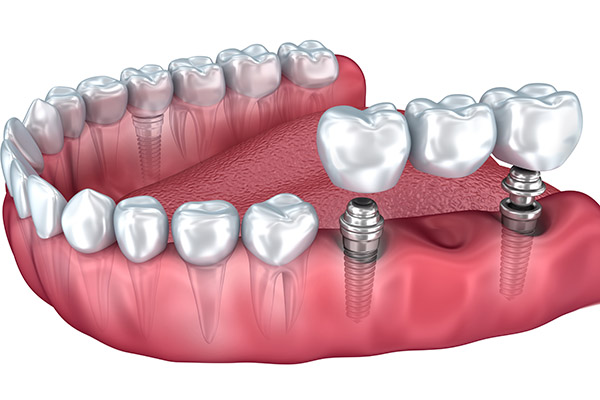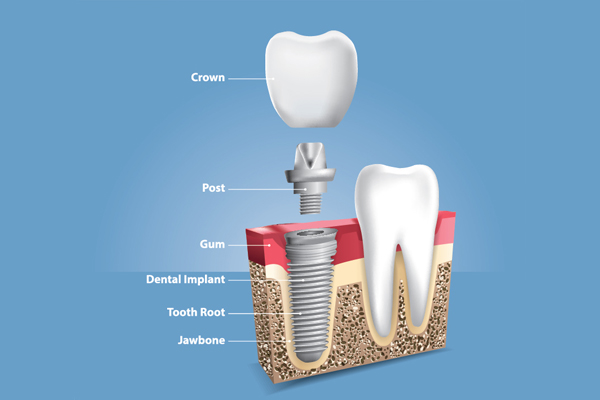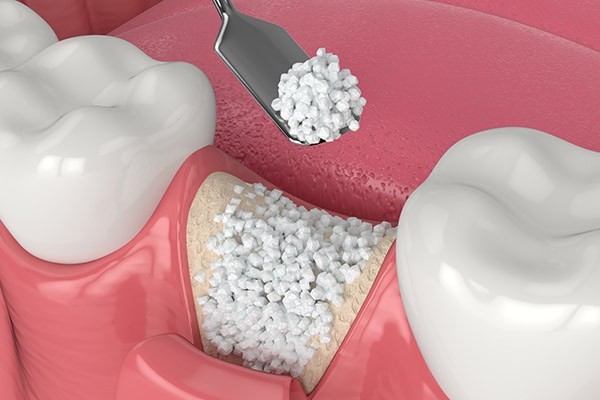Braces Oviedo, FL
Unhappy with the way your smile lines up? With dental braces, you do not have to be. Straight teeth not only enhance your smile but also contribute to optimum oral health and may even relieve jaw pain. Our team can help you on your way to smiling more confidently and more often.
Dental Braces are available at Everest Dental in Oviedo and the surrounding area. Our team can handle all of your teeth straightening needs. Call us at 407-588-4388 to learn more about our services or schedule an appointment.
Why Get Dental Braces
Dental braces can give patients more than just a straight and beautiful smile. Properly aligned teeth are crucial to oral health. Braces can fix crooked or crowded teeth that are difficult to brush or floss around. Braces can also help correct an improperly aligned jaw relieving a host of issues, including pain, biting one's tongue or cheeks, speech issues, and chewing problems. If a patient suffers from TMJ pain, braces may provide relief.
The need for teeth straightening is widespread, and patients have multiple types of braces to choose from. Tradition metal braces are no longer the only option. Our team is happy to discuss the types of dental braces we offer and determine which is the best fit for the patient.
“Properly aligned teeth are crucial to oral health.”
Before Getting Dental Braces
Dentists advise patients to have a dental cleaning and checkup before getting braces. Patients should ask the dentist if there is any dental work they need to complete beforehand. A patient may need spacers placed between their back molars about a week before the brackets and wires are placed. It is important to maintain excellent oral health in the time leading up to the start of treatment as well as during treatment.
We will take impressions of the patient's teeth during the initial consultation and devise a treatment plan. We will take X-rays to see how braces treatment will affect the patient's jaw and surrounding tissue. Patients should make our team aware of any medications they are taking or any chronic conditions they have at this initial consultation, as they may affect the outcome of treatment. We welcome questions and want patients to get the most out of treatment.
“Patients should make our team aware of any medications they are taking or any chronic conditions they have at this initial consultation, as they may affect the outcome of treatment.”
Braces Placement
The placement of dental braces can take anywhere from 90 minutes to two hours, but the discomfort should be minimal. Patients may eat before their appointment as long as their teeth are thoroughly brushed and flossed before. The practitioner will place a retractor in the patient’s mouth to keep it dry and comfortably open. A special adhesive will be placed on each tooth and topped with a bracket. A special light will be used to cure the adhesive, and an archwire will be threaded through the brackets. This is the basic procedure, but it may vary based on the particulars of a patient’s treatment plan. Our team will discuss each step with the patient to make them more comfortable with the process.
Follow-up appointments during treatment are much shorter—usually less than 20 minutes. During treatment time, it is vital to be diligent about brushing, flossing, and dental checkups. These appointments aim to check the patient’s progress and make any needed adjustments, such as replacing the bands on the brackets.
“During treatment time, it is vital to be diligent about brushing, flossing, and dental checkups.”
Check out what others are saying about our dental services on Yelp: Dental Braces in Oviedo, FL
Who Gets Dental Braces
Though braces are most associated with teenagers, they are gaining in popularity among adults. Even the number of adults over 50 getting braces is on the rise as imperfections in bite, and the alignment of teeth tend to worsen with age. As long as a patient’s teeth and gums are healthy, they can enjoy the benefits of dental braces at any age.
It is recommended that children be evaluated around the age of 7 to see if braces are needed. If treatment is needed, the earlier it begins, the better, as more treatment options will be available. Also, because children's and teens' jaws are still growing, early intervention can prevent the need for more involved corrective procedures in the future.
A common worry for parents is how dental braces will affect their children playing sports or engaging in other physical activities. Low-contact activities such as running, swimming, or dancing are perfectly safe at all stages of treatment. However, children and teens involved in higher contact sports and sports involving a ball are advised to wear a mouthguard. In fact, there are special mouthguards designed specifically for braces.
“As long as a patient’s teeth and gums are healthy, they can enjoy the benefits of dental braces at any age.”
During and After Dental Braces
As with any form of treatment, dental braces carry some risk, but they are usually minor especially compared with the benefits of a straighter smile. Braces take some initial getting used to and may impact a person’s speech or how they chew. Any discomfort caused by the brackets or wire rubbing up against the cheek can usually be remedied by dental wax. Keeping up with daily brushing and flossing will reduce the risk of problems caused by food particles or plaque getting trapped in and around the teeth and braces. Our team thoroughly explains any risks involved and how patients can lessen those risks.
In addition to keeping a strict hygiene routine, there are certain foods it is wise to avoid while wearing braces. For the most part, patients may eat the foods they normally do. However, they need to eat these foods in a way that will not impact the braces. For example, instead of biting into a whole apple, cut it down into smaller slices. Steer clear of hard or sticky foods as they may more easily damage the brackets or wires. Most people find that any lifestyle changes they must make during treatment do not interfere significantly with daily life.
Patients look forward to the day the braces come off, and they can enjoy their new smile. However, the day the braces come off is not the end of treatment. Teeth are always on the move. Once braces have been removed, teeth begin to shift back to their original position. For this reason, dentists may recommend the patient wear a retainer anywhere from 4 to 12 months after the removal of braces after the removal of braces. Because teeth shift throughout a person’s life, some dentists recommend wearing the retainer longer.
“Most people find that any lifestyle changes they must make during treatment do not interfere significantly with daily life.”
Questions Answered on This Page
Q. Why would someone need to get dental braces?
Q. How do I prepare for braces placement?
Q. What happens when the braces are placed on the teeth?
Frequently Asked Questions About Dental Braces
Q. What is the right age to get dental braces?
A. There is no "right" age to get braces. It is recommended that treatment start in early teens and late childhood when most of the adult teeth are in, but the jaw is still growing. However, more and more adults, even those over 50, are enjoying the benefits of dental braces.
Q. How should I clean my teeth when wearing dental braces?
A. A daily oral cleaning routine becomes even more essential during treatment with dental braces. Flossing can be challenging, and dentists recommend you use an interdental brush or a floss threader to clean between teeth. A water flosser may also be useful in cleaning around the brackets, wires, and other hard-to-reach places.
Q. Is getting braces painful?
A. There may be some initial discomfort when braces are first put on and after they are adjusted. Most people find the discomfort to be minimal. Some find the wire and brackets irritate or scratch against the inside of the mouth. This issue usually goes away and can be easily remedied with dental wax.
Q. How long will I need to wear braces?
A. The average treatment time with traditional braces ranges between 18 to 24 months. Problems that are more difficult to correct may take up to three years. Less severe issues can take as little as six months to correct. The length of time someone needs to wear braces depends on their unique situation.
Q. Will my teeth be stained after wearing braces?
A. Braces do not cause stains on teeth but plaque that builds up in hard-to-reach areas can cause discoloration. For this reason, a strict brushing and flossing routine is essential. You may want to avoid drinking staining beverages such as soda or coffee while wearing braces. The good news is if discoloration occurs, there are cosmetic procedures available to remedy it.
Call Us Today
Dental braces can give you teeth that make you excited to smile and greatly enhance your overall oral health. Our team at Everest Dental can determine the right treatment for your needs. Call us today at 407-588-4388 to learn more about our services or schedule an appointment.
Helpful Related Links
- American Dental Association (ADA). Glossary of Dental Terms. <
>
About our business and website security
- Everest Dental was established in 2014.
- We accept the following payment methods: Cash, Check, Discover, MasterCard, and Visa
- We serve patients from the following counties: Seminole County
- We serve patients from the following cities: Oviedo,Casselberry, Chuluota, Slavia, and Bertha
- FL (License #DN20614). View License Information and Specifics
- National Provider Identifier Database (1073925590). View NPI Registry Information
- Healthgrades. View Background Information and Reviews
- Norton Safe Web. View Details
- Trend MicroSite Safety Center. View Details
Back to top of Braces





